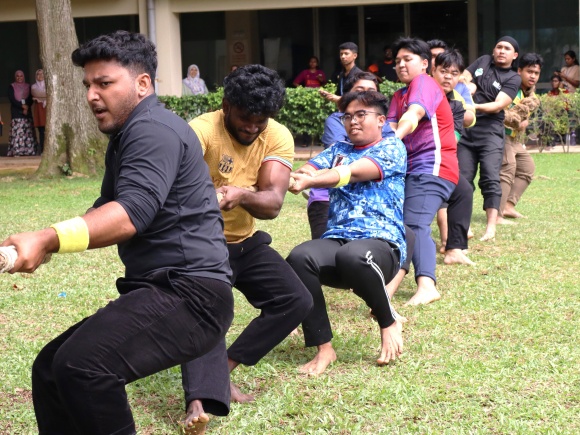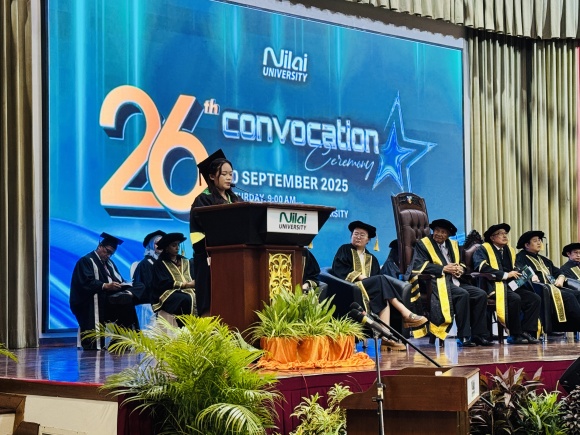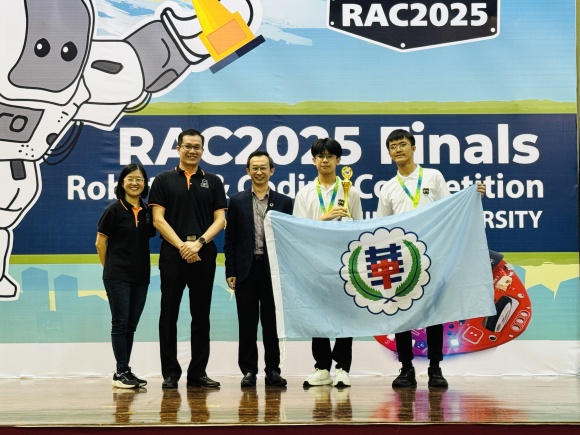There are many compelling reasons for school leavers to check out Nilai U’s Aircraft Maintenance Engineering programmes.
Nilai University (Nilai U) launched its Diploma in Aircraft Maintenance Engineering programme in 2008 and it captured the imagination of many school leavers, making it one of the most popular programmes on campus. It has since grown from strength to strength and it retains its popularity as evidenced by the number of applications every intake. Virender Singh Dahiya, Head of the Aircraft Maintenance department at Nilai U, explains the continuing appeal of the programmes under his purview.
EASA Qualification
“At Nilai U, the syllabus is geared towards preparing students for the all-important European Aviation Safety Agency (EASA) B1-1 licence. EASA promotes the highest common aviation standards in Europe and is widely accepted around the world,” says Virender. With the diploma syllabus similar to that of EASA’s and with notes supplied by Nilai U’s academic partner, Kingston University, UK, students avoid wasting time and effort preparing for two differing sets of examinations.
School leavers and their parents may be somewhat confused by the number of acronyms in this field, but what needs to be understood that unlike some other qualifications being offered, the internationally-recognised EASA licence is pretty much the standard bearer with great opportunity to move abroad,” Virender points out.
The B1-1 licence examinations are the gateway towards becoming a fully licensed aircraft maintenance engineer who is qualified to declare an aircraft as airworthy. This is achieved after the students have acquired the relevant work experience which will take approximately five years. “I wish to make it clear to school leavers and their parents that a course of training can be undertaken under the a Part-147 approved basic training school which must be followed by a minimum 2 years of practical maintenance experience. The Part-147 approved training route is better suited for mature students or for those who are already working in aviation industry. But school leavers need more experience to consolidate the training received and to gain confidence and maturity to better handle the responsibilities and privileges of a licensed engineer,” he counsels.
Flexibility
The EASA examinations are invigilated by CAA International (a fully-owned subsidiary of the Civil Aviation Authority, UK) and ensure that standards are maintained, giving employers full confidence in the sanctity of the test results. Students will need to pass all 13 EASA modules of B1-1 category and gain 5 years of experience. They must apply for their basic licence within 10 years after the sitting for the first paper. “Of course, we do not expect students to take 10 years but this allows for flexibility and students can sit for any number of modules each semester. We usually advice students to take the EASA modules after they have completed the University’s final exam for each semester, allowing them to focus and be confident for the EASA exam,” says Virender. Students also have the option of taking just the Diploma and not the EASA examinations. The latter examinations are open to external students as wellwho can register for it online (http://www.nilai.edu.my/sites/default/files/EASA%20Part%2066%20Registra…).
Facilities
Since launching in 2008, Nilai U administrators have been busy upgrading the facilities for this programme. This is not an institution which merely focuses on the delivery of theoretical knowledge, leaving the practical training to industry partners. Nilai U has a purpose-built hangar housing two aircrafts. “The two aircrafts are completely different. One is a turbo-prop with a conventional cockpit while the other is a ‘glass cockpit’ which is automated and digital with Collins Pro Line 4 avionics system which includes the FCS-850 digital flight control system, FMS-850 flight management system and Electronic Flight Instrument System (EFIS). This allows our students to have hands-on experience working on different types of aircraft,” states Virender. Other facilities in the hangar include a workshop,airframe bay, engine bay, battery charging bay, wind tunnel, tool store, technical library, E-Learning platform, electrical, electronics and avionics laboratory.
Head of Nilai U’s Aircraft Maintenance Engineering Department, Virender Singh Dahiya (seated on top of aircraft), says that students will benefit from being able to work on two different type of aircraft on campus.
Experienced lecturers
“I can confidently say that we have the best teaching staff in this highly technical field. Many of them have decades of experience in the armed forces or with nationalised air carriers as well as in the private sector,” says Virender. He is keen to stress that the teaching staff is sizeable not just to cope with the large number of students but to provide comprehensive teaching in various niche areas such as avionics, airframe and engine systems. There are also lecturers from other faculties who teach subjects such as English allowing students to get a thorough and well-rounded education. “That is one of the benefits of studying in a multi-discipline university. Every subject is taught by a bona fide expert in the area. Also, students get to mingle and learn from students of other disciplines,” Virender emphasises.
The Head of Department, a veteran of Air Force, says that his lecturers keep a close eye on each and every student. “Everything from grooming to counselling is under our watchful eyes. At Nilai U, we instil discipline as far as grooming is concerned to get students used to industry standards. They are also trained to be punctual and meticulous in everything they do, as this is what is expected of them in the working world,” he states. “But apart from enforcing a strict code of conduct, our lecturers also provide counselling to ensure all students are mentally and emotionally healthy. If we suspect anything is amiss, we will alert the academic counsellor or the mentor of student.”
Pathway to Higher Qualifications
Nilai U also offers an Advanced Diploma in Aircraft Engineering Technology. Students who successfully complete the Diploma programme can opt to enter this one-year top up programme. Kingston University, UK has recognised that the modules in the Diploma and Advanced Diploma programme are akin to their degree programme and will award a BSc (Hons) in Aircraft Engineering to successful candidates. “This is for those who are looking to climb the career ladder. A degree will certainly help a candidate move into managerial or supervisory positions,” Virender advises. “The degree will also act as pathway to Kingston University’s Master’s degree programme.”
Affordable Cost
One key factor is cost. By enrolling in the Diploma in Aircraft Maintenance Engineering programme and sitting for the EASA exams locally, there is a potential for great savings. The one year top up programme means a student can earn a UK degree for a fraction of the price of going abroad. “There a myriad of reasons why students should join us but it would be moot if it is beyond their financial means. But by making it affordable, more students and their parents can look forward to a rewarding career in a highly-lucrative industry,” concludes Virender.
Nilai U has affiliations with 19 industry partners for the aircraft maintenance engineering students to do their six-month On-Job-Training, including Air Asia, Air Asia X and KLM Royal Dutch Airline. For more information, please go to www.nilaiedu.my or call 06-8502388 / 07-2262336 / 03-79603089.



